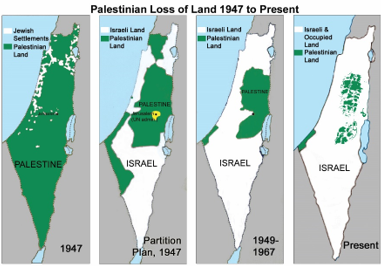You're all caught up—no notifications available.
Explore All Exams at KGS

All Exams
Explore All Exams at KGS
Khan Sir Courses
Geography I Polity I History | World Map I Indian Map I Economics I Biology
UPSC & State PSC
UPSC I BPSC I UP-PSC I MP-PSC
State Exams
UP I Bihar I MP | Rajasthan
NEET | JEE | CUET | Boards
NEET | JEE | CUET | Boards
Defence Exams
NDA I CDS I CAPF I AFCAT I SSB I Agniveer
Police Exams
UP SI | Bihar SI | Delhi Police | UP Constable
SSC Exams
CGL I CPO I CHSL I MTS I SSC GD I Delhi Police
Foundation Courses
Physics I Chemistry I Biology I History I Geography I Polity I NCERT I Math I English | Map I Reasoning
Railway Exams
RRB | RPF
Teaching Exams
TET | Teaching | UGC
Banking Exams
SBI | RBI | IBPS
Engineering Exams
Civil | Electrical | Mechanical
UGC NET
UGC NET/JRF
Current Affairs provides you with the best compilation of the Daily Current Affairs taking place across the globe: National, International, Sports, Science and Technology, Banking, Economy, Agreement, Appointments, Ranks, and Report and General Studies

SYLLABUS
GS-2: Important International institutions, agencies and fora - their structure, mandate.
Context: Recently, the French President has announced that France will officially recognise a Palestinian state in September, making it the first G7 nation to take this historic step.
More on the News
• France and Saudi Arabia co-chaired a high-level summit at the United Nations in New York to generate momentum for the international recognition of a Palestinian state.
• Foreign ministers of France and 14 other countries represented at a special UN conference issued a "New York call" urging nations across the world to recognise a Palestinian state.
• Meanwhile, the United Kingdom and Canada have stated that they will recognise Palestine as a state unless Israel fulfils certain conditions.
• The United States condemned the UN conference on the Israeli-Palestinian two-state solution, calling it unproductive.
• Israel has consistently opposed Palestinian statehood, arguing that such recognition would reward terrorism, particularly in light of the 2023 Hamas attack that ignited the ongoing war.
About the Two-State Solution
• The Two-State Solution refers to the proposed resolution to the Israeli-Palestinian conflict through the creation of two independent states—Israel and Palestine—coexisting side by side in peace and security.
• It envisions a sovereign Palestinian state in the West Bank and Gaza Strip, with East Jerusalem as its capital, alongside the existing state of Israel.
Historical Evolution of Palestine
• The evolution of Palestine's modern history is deeply intertwined with colonial legacies, war, displacement and decades of conflict and negotiations.
• Balfour Declaration (1917): The British government issued a public statement supporting the establishment of a “national home for the Jewish people” in Palestine, then an Ottoman-controlled region with a small Jewish minority. This laid the foundation for future tensions.
• UN Partition Plan (1947): The United Nations proposed dividing British-ruled Palestine into separate Jewish and Arab states, with Jerusalem under international control. While Jewish leaders accepted the plan, Arab leaders rejected it outright.
• Creation of Israel and First Arab-Israeli War (1948): Following Israel's declaration of independence, five Arab states launched a war against it.
• Six-Day War (1967): between Israel and the Arab countries of Egypt, Syria and Jordan
• First Intifada (1987–1993): A mass Palestinian uprising erupted in the occupied territories, marked by civil disobedience, protests and clashes. It brought international attention to the Palestinian cause and pressure for negotiations.
• Oslo Accords (1993): Marking a major diplomatic breakthrough, Israel and the Palestine Liberation Organisation (PLO) agreed on a framework for a two-state solution. This led to mutual recognition and the formation of the Palestinian Authority (PA) to govern parts of the West Bank and Gaza.
• Stalled Peace and Second Intifada (2000–2014): Despite multiple attempts to finalize a two-state agreement, efforts were derailed by the Second Intifada, rising political extremism, Israeli settlement expansion and leadership crises on both sides.

Achievements of Palestine
• International Support: Over 140 UN member states now recognise Palestine.
• Partial Self-Rule: The Palestinian Authority governs limited areas of the West Bank.
• Recognition of the Concept: The Two-State Solution is the official policy of the UN, EU, Arab League, and many Western nations.
• Geneva Accord (2003): An unofficial but detailed model laying out principles for:
UPSC Mains Practice Question
Q. “France’s recognition of Palestinian statehood marks a shift in global geopolitics surrounding the Israeli-Palestinian conflict.”Discuss the significance of this move in the context of the Two-State Solution and its implications for India's West Asia policy. (15M, 250W)
Source

NCERT Books
Resources
We love learning. Through our innovative solutions, we encourage ourselves, our teams, and our Students to grow. We welcome and look for diverse perspectives and opinions because they enhance our decisions. We strive to understand the big picture and how we contribute to the company’s objectives. We approach challenges with optimism and harness the power of teamwork to accomplish our goals. These aren’t just pretty words to post on the office wall. This is who we are. It’s how we work. And it’s how we approach every interaction with each other and our Students.
Come with an open mind, hungry to learn, and you’ll experience unmatched personal and professional growth, a world of different backgrounds and perspectives, and the freedom to be you—every day. We strive to build and sustain diverse teams and foster a culture of belonging. Creating an inclusive environment where every students feels welcome, appreciated, and heard gives us something to feel (really) good about.
Get Free academic Counseling & Course Details
